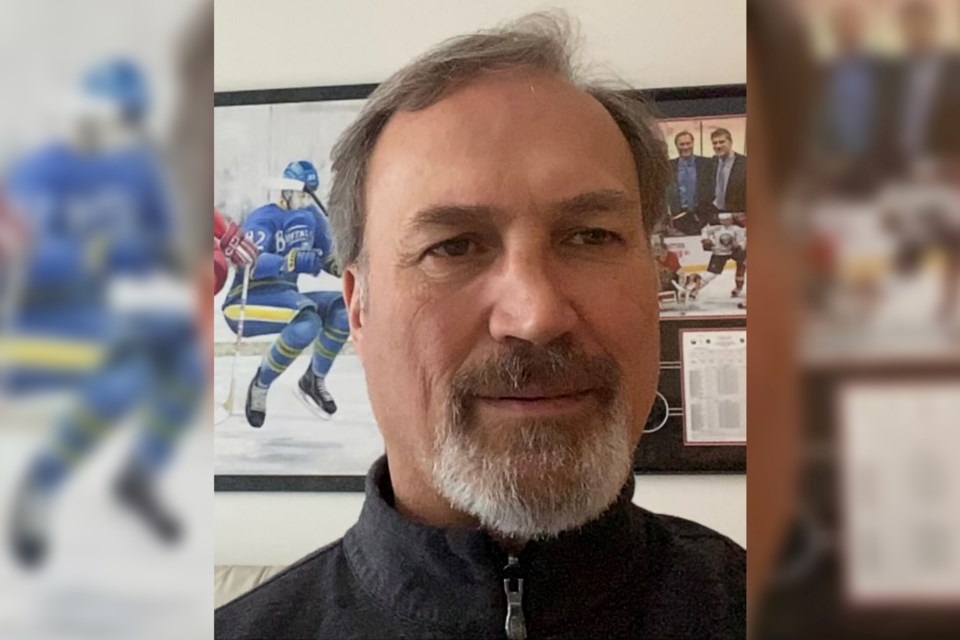Coaches will often suggest they learn as much from their athletes, at times, as their athletes learn from them.
Current assistant coach of the Canadian Para Hockey team Mike Foligno would endorse this statement a hundred times over as he tackles his fifth year on the staff of the national squad.
“It’s been a learning curve – but it’s been a lot of fun,” suggested the former OHL and NHL coach and Sudbury native who was leaving this week for an Own The Podium coaching conference in Whistler, B.C.
Not that the learning has come as a surprise.
Following an assistant coaching role with the New Jersey Devils and then a couple of years of pre-expansion franchise work with the Vegas Golden Knights, Foligno was open to whatever possibilities might come his way, greeting them with that same cheerful smile that local folks have come to know all too well.
“I told them that I don’t know anything about para hockey, but I would love to try it out,” Foligno recalled of his earliest conversations with Marshall Starkman, the current manager of team operations. The pair had crossed paths at Roger Neilson coaching symposiums over the years.
“It’s been a very rewarding situation to be in. I really enjoy working with these players, to help try and teach them how to be good professionals.”
That part of the game was old hat to Foligno, the 64-year-old Sudbury fixture having spent his life around hockey. The specifics of the para game, however, likely reminded him of the feeling his former Wolves rookies might have felt upon participating in their first Foligno-run training camp at the OHL level.
“There are a lot of transferrable parts of the game, but there are definitely some parts that do not fully translate,” he said. “There is no backwards skating; they can do a backwards spinorama, but to actually skate backwards is very difficult – so angling is really important, cross-drops are a very important part of the game – and there’s a timing factor.”
“Instead of having two defenceman skating backwards, they usually scissor across the ice and that’s how they angle the attacking player,” Foligno added. Clearly, the shooting process is quite different, from the very make-up of the stick itself and on, but it’s a skill that is every bit as important in the para game as it is in the NHL.
“The shooting is more dangerous here because you are actually shooting with both hands and a quick pass under the sled can make that happen,” the coach explained. “The goaltender might have the angle on the right-hand shot and boom, the shot is coming from the left.”
“Some of the more elite players on the national teams are incredible shooters, very accurate,” Foligno added. “And they can put a lot of velocity on that shot.”
Foligno is quick to admit that he has come a long way on so many levels of the course of his five years of involvement with Team Canada. Always a wonderful ambassador of the game, the man who first honed his skills on the outdoor rinks of Lebel Playground was ultra conscious of the audience with whom he was speaking as he began this incredible journey.
“At the start, I was very leery of the words I was using, not saying something that would apply a lot more to able bodied athletes than disabled athletes,” Foligno recalled. “Then you realize that they get it. They have been in all kinds of situations and honestly, they just want to be told the information that they need to get better and improve.”
True – but this is anything but a cookie-cutter group.
“They are coming from all parts of the country, they are coming from all different levels of hockey, they are coming from all different backgrounds,” said Foligno. “A lot of these athletes have played before, but some have never played. Some were born with a disability and some had to deal with an injury or accident in just the last few years.”
They all, however, enjoy a common love of hockey – and few family names are more synonymous with the sport than the Foligno clan.
“I think some of our younger players have looked at You Tube,” laughed Foligno. “They’ll ask me: what’s that jump all about? But they are all so good. They all follow Nick and Marcus. We had both of them (Nick and Marcus Foligno) on a Zoom call and all of the players were able to ask them questions. There are a lot of things that are relatable.”
As he now prepares for a development camp at the end of April and World Championships in Moose Jaw in June, coach Foligno has lost little of his competitive edge.
“Team USA is the team to beat; they have probably been the most successful team in the past eight years,” he said. “We’ve had a lot of turnover, so I like to say that we are becoming Team Canada.”
And Mike Foligno is thrilled to be along for the ride – as both teacher and student.
Randy Pascal is a sportswriter in Greater Sudbury. Pursuit is made possible by our Commuity Leadership Program.
